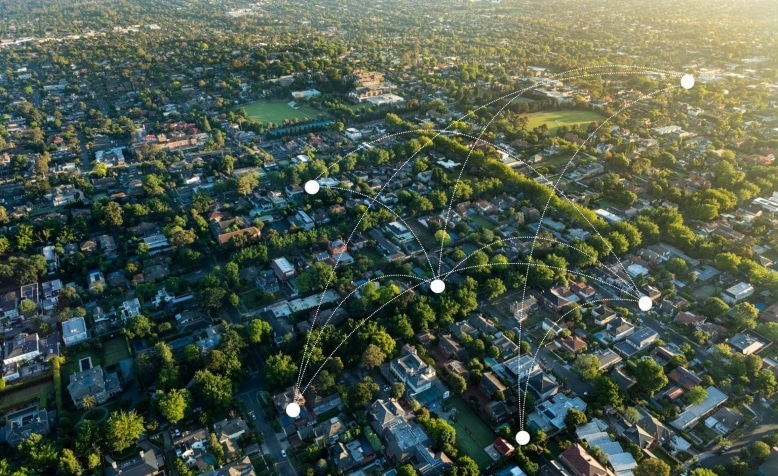Broadband Office Name: The Alabama Digital Expansion Division of the Alabama Department of Economic and Community Affairs (ADECA)
BEAD Award Amount: $1.4 B
Alabama Broadband Director: Maureen Neighbors
Website: https://adeca.alabama.gov/broadband/
Alabama BEAD Program Tracker
| State | IP Vol 1 Approval | IP Vol 2 Approval | Challenge Process Submission Started | Challenge Process Final Determination Phase Completed | 1-Year Subgrantee Selection Process |
|---|---|---|---|---|---|
| Alabama | Yes | No | No | N/A | N/A |
Alabama BEAD Program Information

Key Updates
Alabama is currently awaiting NTIA approval on Initial Proposal Volume 2 and will be starting the challenge process soon, with more information to come.
In March 2024, Alabama awarded over $501 million in grants to ISPs, benefiting an estimated 127,000 households and institutions.
Additionally, in February 2024, Governor Ivey announced 66 capital projects fund grants totaling $148.3 million were awarded to 16 ISPs.
Alabama BEAD Program Plans & Maps
Alabama BEAD Program Initial Proposal Volume 2: Overview
*Information is subject to change. Alabama is awaiting official approval of Initial Proposal Volume 2 from the NTIA.
BEAD Long-Term Objectives
The Alabama Department of Economics and Community Affairs (ADECA) aims to serve 100% of unserved and underserved locations with a minimum 100/20 Mbps service within 5 years, and to deliver gigabit connections to Community Anchor Institutions (CAIs) that do not currently have that level of service within the same timeframe.
Key initiatives include:
- Developing grant programs for middle-mile and last-mile fiber deployment, with an emphasis on rural and unserved areas.
- Maintaining and expanding the capacity of the state broadband map.
- Fostering relationships with ISPs and other partners to ensure reliable broadband access.
- Conducting technical assistance outreach to partners in each county.
- Providing county broadband and digital opportunity profiles.
- Implementing the Alabama Statewide Digital Opportunity Plan.
- Requiring ISPs awarded grant funds to participate in the ACP program.
- Conducting surveys for residents to understand broadband and digital opportunity needs.
- Distributing questionnaires to organizations that serve and represent underrepresented communities.
- Leveraging federal and state funding sources to achieve universal broadband coverage.
- Developing grant programs specifically for middle-mile fiber deployment.
- Creating grant programs for last-mile deployment, focusing on rural and unserved areas.
Alabama BEAD Program Project Area Design
Applicants will create their own boundaries, focusing on the county level. All 67 counties are application categories, and applications will be solicited for service to all or some of the eligible locations within each county.
Prioritization:
- Unserved locations
- Underserved locations
- Community Anchor Institutions (CAIs)
ADECA’s internal modeling suggests that the available funds may provide Fiber to the Premises (FTTP) to all currently unserved and underserved locations.
Alabama BEAD Program Extremely High Cost Threshold
The Extremely High Cost (EHC) threshold will be set primarily based on the pricing and associated data provided by applicants through the application process. This will include feedback and outcomes from the Negotiation Phase, as well as additional data developed by ADECA from previous grant programs and market research efforts.
BEAD Deployment Subgrantee Selection
ADECA is asking for the following preregistration evidence from subgrantees and compliance with: Financial capability, managerial capability, operational capability, technical capability, ownership info, public funding info, compliance with laws, cybersecurity/supply chain compliance, and BABA/EHP/NEPA/NHPA compliance.
Primary Scoring Criteria for Priority Broadband Projects
- 40 pts – Minimal BEAD Outlay
- 20 pts – Affordability
- 15 pts – Fair Labor Practices
Secondary Scoring Criteria
- 1 pt – Speed to Deployment
- 10 pts – Community/Local government/Tribal government support
- 10 pts – Percentage of unserved locations
- 4 pts – Lower-cost residential service
Other Last-Mile Projects
Primary Scoring Criteria for Priority Broadband Projects
- 40 pts – Minimal BEAD Outlay
- 20 pts – Affordability
- 15 pts – Fair Labor Practices
Secondary Scoring Criteria
- 1 pt – Speed to Deployment
- 10 pts – Community/Local government/Tribal government support
- 10 pts – Speed of network and other technical capabilities
- 4 pts – Lower-cost residential service
BEAD Non-Deployment Subgrantee Selection
ADECA does not anticipate having non-deployment subgrantees based on its internal modeling. However, if there are leftover BEAD funds, it plans to fund non-deployment activities consistent with the BEAD NOFO.
BEAD Eligible Entity Implementation
ADECA plans to implement key program administrative and implementation activities without issuing a subgrant. These activities include:
- General administration and management of the BEAD award.
- Implementation of the state’s challenge process.
- Implementation of the state’s subgrantee selection process.
- Obtaining software to manage the state’s challenge process and subgrantee selection process.
- Overseeing subgrantee compliance.
BEAD Local, Tribe, and Regional Broadband Planning Process
ADECA initiated an external engagement process with local, Tribal, and regional broadband planning entities. This effort included in-person meetings across all 67 counties, along with additional virtual discussions, online questionnaires, and a phone survey of residents.
Engagement Efforts to Support the Initial Proposal and Statewide Digital Opportunity Plan:
- Identified key state and local partners that cover underrepresented populations and developed an outreach list and online data tool for educational material.
- Implemented a regionally based statewide resident survey on digital access designed to “oversample” specific populations.
- Distributed partner questionnaires and related presentation materials to gather data on barriers, affordability programs, programmatic assets, and measurable objectives.
- Conducted in-person technical assistance meetings in all 67 Alabama counties.
- Held statewide discussions virtually and developed materials for ISPs, local and regional governments, and nonprofit community organization partners.
- Coordinated engagements with federally recognized Tribal nations and historic HBCUs.
- Developed detailed county-level profiles that provide analysis of digital opportunity and broadband access data, resident survey results, mapping, research, and modeling.
BEAD Labor Standards & Protection
ADECA requires all BEAD subgrantees to submit the following information:
A record of past compliance with federal/employment laws:
- Must address info on deployment projects within the last 3 years.
- Certification form from an Officer/Director level employee of past compliance.
- Written confirmation that subgrantee has disclosed any violations from contractors within the last 3 years.
- Discussion of workforce plan
Plans for ensuring compliance with federal/employment laws:
- How subgrantee will ensure compliance in its labor/employment practices.
- Info on applicable wage scales, wage, and overtime practices for each class of employee expected to be involved in physical construction of the network.
- How subgrantee will ensure implementation of workplace safety committees.
- Comply with the Prevailing Wages Act.
- Other items as outlined in the BEAD NOFO.
ADECA will require successful applicants to submit ongoing workforce reports:
- Whether the workforce will be directlt employed by subgrantee or subcontracted.
- Will the workforce receive prevailing wages and benefits.
- Whether the subgrantee plans to use project labor agreements, local hire preferences, union neutrality commitments, or labor peace agreements.
- Entities the subgrantee plans to subcontract with.
- Job titles and size of workforce.
- For each job title, a description of wages, benefits, wage scales, and how wages are calculated.
- If employees are required to complete OSHA safety training or any by law, as well if any in-house training is linked to titles, uniform wage scales, or skill codes.
BEAD Minority Business Enterprises / Women’s Business Enterprises / Labor Surplus Area Firms Inclusion
ADECA certifies it will take all necessary affirmative steps to ensure the inclusion of Minority Business Enterprises (MBEs), Women Business Enterprises (WBEs), and Labor Surplus Area (LSA) firms, when possible, by:
- Placing qualified small and minority businesses and women’s business enterprises on solicitation lists and soliciting them whenever they are potential sources.
- Dividing total requirements, when feasible, into smaller tasks or quantities to permit maximum participation by small and minority businesses and women’s business enterprises.
- Establishing delivery schedules, where the requirement permits, which encourage participation by small and minority businesses and women’s business enterprises.
- Using the services and assistance of organizations such as the Small Business Administration and the Minority Business Development Agency of the Department of Commerce.
- Requiring subgrantees to take the affirmative steps listed above as they relate to subcontractors.
BEAD Cost & Barrier Reduction
1. Promoting the use of existing infrastructure.
2. Promoting and adapting dig-once policies.
3. Streamlining permitting processes.
4. Streamlining cost-effective access to poles, conduits, and easements.
5. Streamlining rights of way, including the imposition of reasonable access requirements.
BEAD Low-Cost Broadband Service Option
The American Community Survey reports that 89.9% of Alabama residents have internet service of some kind. Among those without internet, 42.6% cite the inability to afford it as the primary reason. An estimated 40% of eligible locations in Alabama have enrolled in the Affordable Connectivity Program (ACP), which is higher than the national average of 35%.
Alabama has been actively promoting subsidy programs like the ACP, the Alabama Broadband Accessibility Fund, and the AIMM program. The state has also incorporated affordability requirements into the Alabama Capital Projects Fund Program.
Many entities, including ISPs, municipal governments, and Community Anchor Institutions (CAIs), have offered assistance in spreading awareness of these subsidy programs. Some providers offer plans at little to no cost for eligible ACP subscribers.
BEAD Middle-Class Affordability
The median household income in Alabama was $54,943 in 2021, according to data from the U.S. Census Bureau. This benchmark is useful for determining middle-class affordability.
ADECA plans to support middle-class affordability by addressing the following areas of risk:
- High Subscription Costs: Small, local providers may propose low requested BEAD support but set high subscription costs. ADECA will encourage ISPs in the BEAD grant program to offer their best prices for analogous products in grant-funded areas, in alignment with BEAD requirements.
- Capital Costs: Providers might shift drop and installation costs to the consumer to recover capital costs. ADECA will monitor and regulate these practices to prevent excessive charges to consumers.
- Service Refusal: Providers may refuse to provide service to expensive locations. ADECA will work to ensure that all eligible areas receive service, regardless of cost.
- Differential Pricing: There could be differential pricing between urban and new project areas. ADECA will strive to ensure consistent pricing across different regions to avoid unfair disparities.

